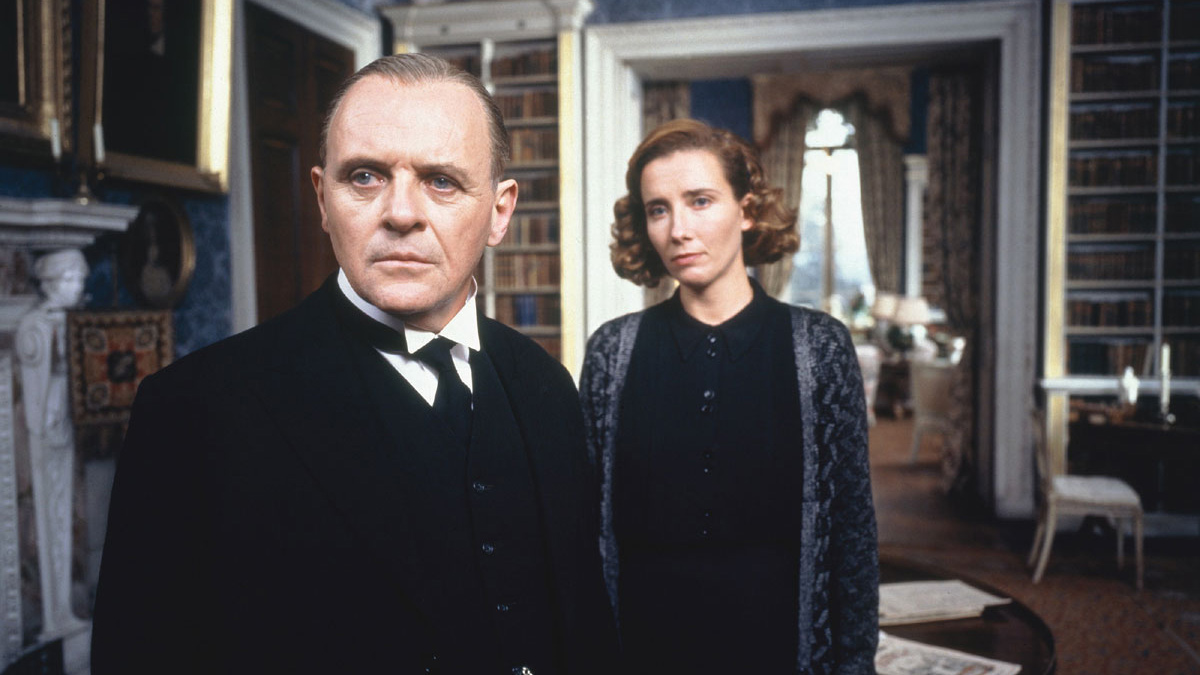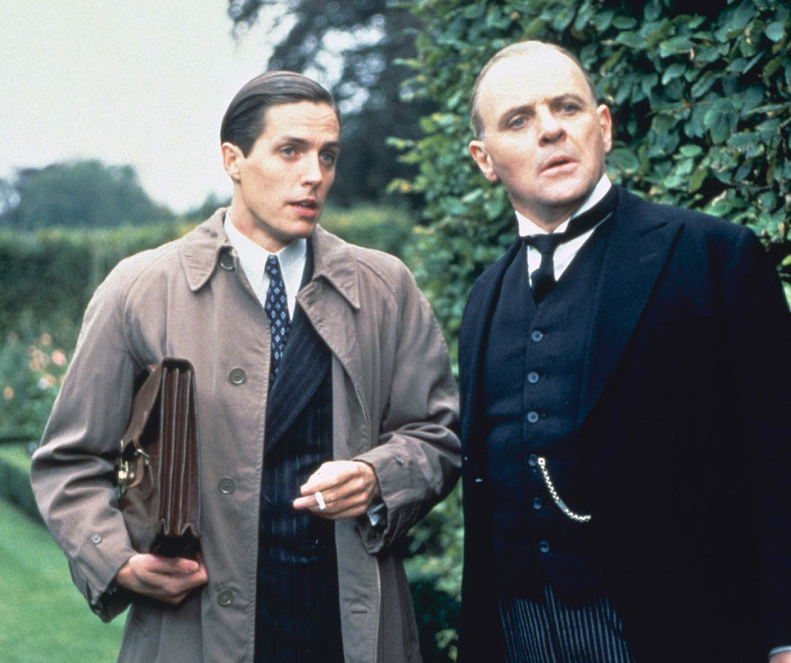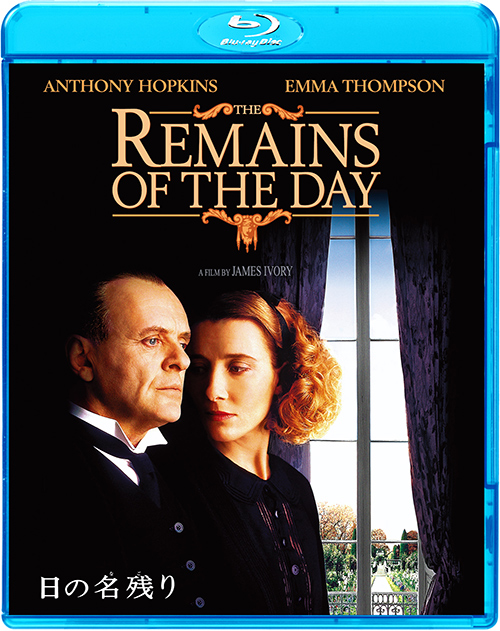
©1993 COLUMBIA PICTURES INDUSTRIES, INC. ALL RIGHTS RESERVED.
“The Remains of the Day” The “selfless servitude” lifestyle exemplified by Anthony Hopkins can be compared to anyone’s life.
2021.04.24
Emotions and politics depicted by Kazuo Ishiguro
Kazuo Ishiguro, now a Nobel Prize-winning author, says the following about the original novel in the making of this movie's DVD: ``The theme is the emptiness of life, and the main character is an English butler.'' In that case, I decided to draw it based on two points: the emotional part and the political ideology.
The emotional part is the love story between the main characters, Stevens and Miss Kenton, while the political philosophy is the relationship between Stevens and his master, Lord Darlington (James Fox), over politics. From the middle of the story, high-ranking German government officials begin to visit Lord Darlington's mansion. Lord Darlington eventually takes the wrong path politically, believing that cooperating with the Nazis will benefit Britain. After the war, he was given the disgraceful label of ``an aristocrat who collaborated with the Nazis'' and spent his later years unhappy.
Lord Darlington is seriously worried about his best friend's son, Cardinal (Hugh Grant). As a reporter, he learns that an important meeting that will affect the nation is being held at Lord Darlington's mansion, and tries to find out what is going on. When Cardinal asks him about his political views, Stevens has no answer. If he had political views, could he have saved his master from being exploited by the Nazis? No one knows the answer.

“The Remains of the Day” ©1993 COLUMBIA PICTURES INDUSTRIES, INC. ALL RIGHTS RESERVED.
After the war, a wealthy American (Christopher Reeve) buys the mansion. Great changes were coming to British society. The novel begins in July 1956. That year, John Osborne appeared in the theater world with ``Look Back in Anger,'' drawing attention to the postwar generation known as ``angry young people.'' Then, in the early 1960s, The Beatles also appeared, and a new youth culture blossomed. Now that Stevens is an old man, he is becoming a relic of an older era, but his strong sense of work evokes a strange sense of sympathy.
Ishiguro commented in the interview for the aforementioned DVD, ``This story can be compared to anyone's life.It's a universal human drama that can be empathized with regardless of country or era.'' The main character has been walking the path he believes in. As a selfless servant, he was unable to witness his father's death, missed the once-in-a-lifetime Being There of love, and was unable to help his master who was falling from grace. However, he still takes pride in his work and is now doing his best for his new master.
Anthony Hopkins' human charm makes Stevens's inner conflicts and weaknesses feel real. As the audience follows his journey, we, too, will find ourselves reminiscing about our own lives, and look back on past events and unfulfilled dreams.
Text: Sawako Omori
Movie journalist. His books include "Lost Cinema" (Kawade Shobo Shinsha) and other books, and his translations include "Woody" (by D. Evanier, Kinema Junposha). Contributes to magazines such as ``Weekly Women'', ``Music Magazine'', and ``Kinema Junpo''. A research book based on the web series, ``Mini Theater Revisited,'' is also scheduled to be published.

"The Remains of the Day"
Blu-ray: 2,619 yen (tax included)
Release and sales: Sony Pictures Entertainment Inc.
©1993 COLUMBIA PICTURES INDUSTRIES, INC. ALL RIGHTS RESERVED.

